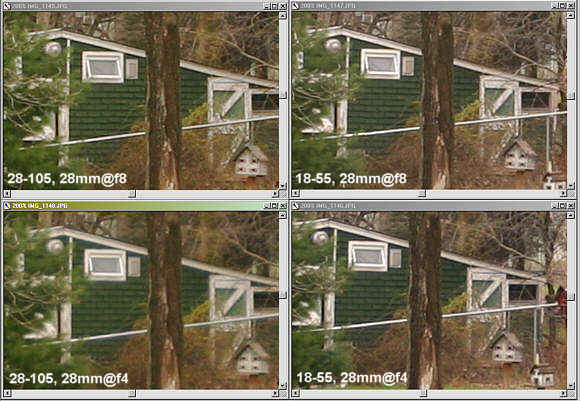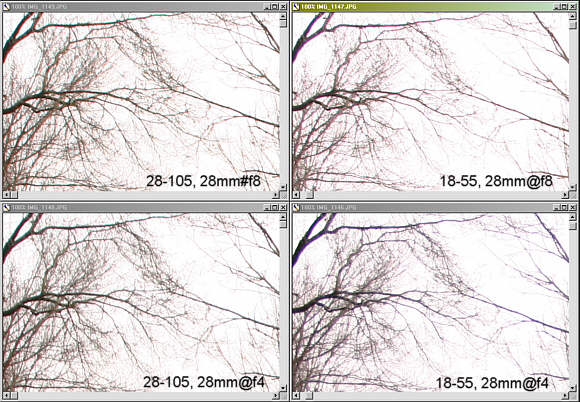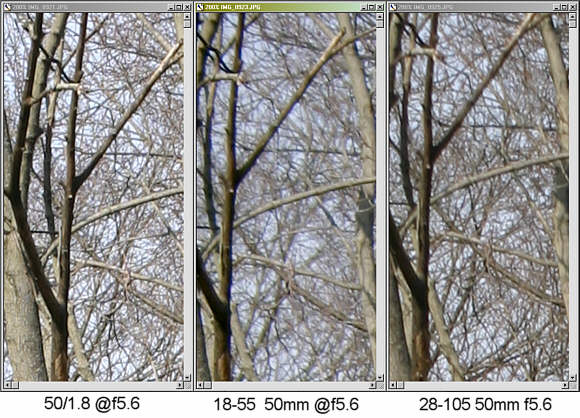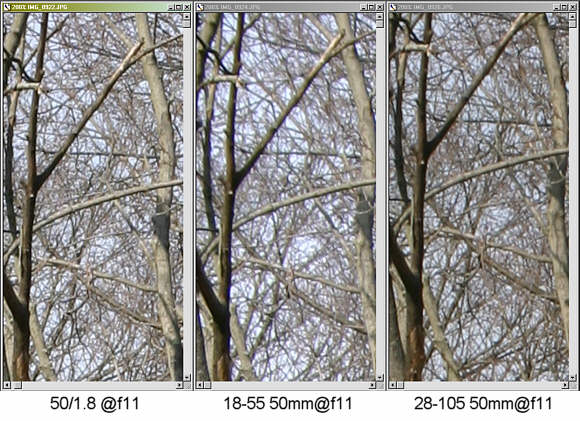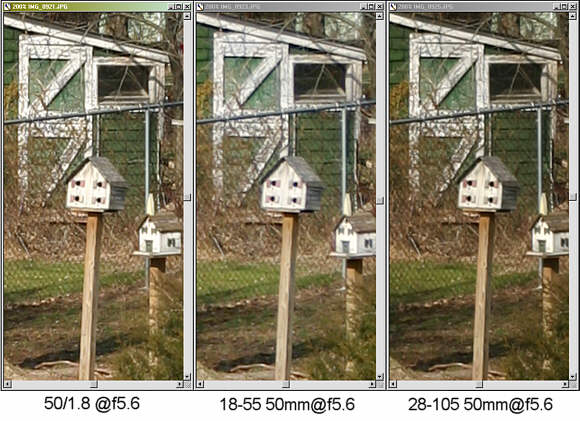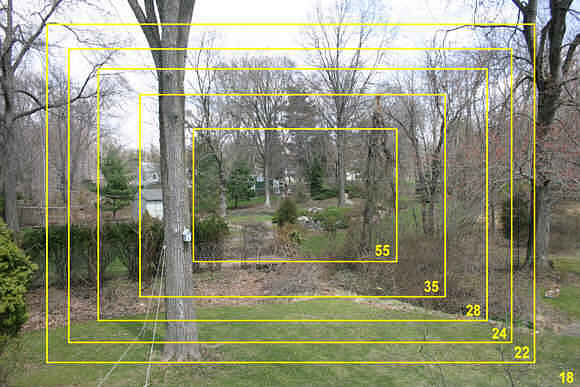
CANON EF-S 18-55 LENS REVIEW
|
Canon EF-S 18-55/3.5-5.6 Lens ReviewPerformance at 28mm and 50mmMoving on now to 28mm and using a 28-105/3.5-4.5 as the comparison lens let's first take a look at the center of the image:
Not a huge amount of difference. Again it looks as if the 18-55 may be slightly sharper than the 28-105 at f4 but things are even at f8. Stopping down from f4 to f8 doesn't change the 18-55 image much but it does slightly sharpen the image from the 28-105. Corner performance is shown below:
Not a huge amount of difference here. Both lenses are pretty similar and stopping down doesn't really do a whole lot. Again a very creditable performance from the 18-55, certainly more than acceptable at 28mm. 50mmThe final test was done at 50mm and the 18-55 was compared with both a 50mm prime and a 28-105/3/5-4.5. First let's look at the edge of the image at f5.6 (wide open for the 18-55).
Not much doubt here that the 18-55 is the worst of the group. The 28-105 is clearly sharper, and the 50mm prime sharper still. So what happens when we stop down to f11?
Well, things now look more equal, however the 18-55 still seems less sharp then the 28-105, though not by very much. The 50mm prime is best, which shouldn't be a big surprise. Below is the center performance of each lens at f5.6. Pretty similar quality, but the 18-55 is maybe just a little softer than the other two lenses.
Again I think the 18-55 gets a decent rating at 50mm. Not as good as a 50/1.8 (get one if you can find one!), not quite as good as a 28-105/3.5-4.5, but still very usable. Zoom RangeJust in case you're wondering how much difference an 18mm setting makes makes, compared to say a 20-35, 24-85, 28-105 lens or even the old 22-55, here's a shot with approximate frame lines. The gain over a 24 or 28mm lens is significant. The gain over a 20mm lens (interpolate between 22mm and 18mm) isn't huge.
© Copyright Bob Atkins All Rights Reserved |
|
